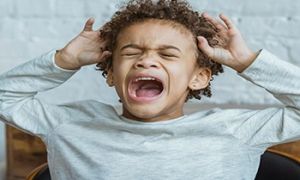Nail Biting or Onychophagia is a very common behaviour found in children and adults. Nearly 30% of children are found to have this unwanted behaviour. This behaviour remains unrecognised, denied because of the unawareness of the negative consequences in future.
Classification
Nail biting isn’t got to do much with manners but more than that a mental health and physical health issue. Psychiatry classifies chronic nail biting an impulse control disorder, a sign of underlying anxiety. It is an oral compulsive habit psychologically termed as Obsessive compulsive disorder if critical. Therefore, it is wise to be supportive to the children in eradicating this negative habit in the early years after its onset.
When It Starts
Nail biting does not start until the age of 3. However, it increases from childhood to adolescence and decreases in adulthood, and sometime may even stop somewhere in between. Most of them stop on their own by the age of 30.
How It Starts
More than on genetic basis, nail biting (NB) is a learned behaviour. The following may be the situations -
Acquired - Parents or peer anyone who is being a role for the kids, if they have this habit of nail-biting, the child tend to follow his/her model. Thus it can be an acquired behaviour.
Stress-relieving - When too much is going on in the head, the child expresses by way of nail-biting. This is a coping mechanism and brings calming effect.
Anxiety & Nervousness - When over stimulated this behaviour pattern takes place.
Boredom - When the child is under stimulated or when there is nothing to do, the fingers will immediately move on to the mouth. This habit appears during quite, solitary, inactive moments.
Oral Fixation - Constant need to put something in the mouth.
Shaping the nails - Instead of cutting the nails the children find satisfaction by biting to shape the nails, using teeth a handy instrument.
Parental scolding, punishment, bullying by other kids, shyness, pressure to achieve good grades, inability to fit in the social group all these factors plays role in habituating nail biting. Overall, Nail Biting is an unconscious common reaction to stress.
Adverse Effects Of Nail Biting
One of most important negative aspect of nail biting is bad hygiene and spread of germs. The infection is directly passed on from the hand to the mouth. While biting the nails, the cuticles which lies beneath the nails if bitten causes pain. It might even cause bleeding, bruises, infections. The appearance of the bitten nails and the shabby looks of the fingers may cause more guilt, anxiety and embarrassment. It affects the self esteem of the growing kid.
The severity of nail biting habit should be observed if mild or chronic based on which necessary treatment plans should be made. Mild nail biters may change in course of time but if it is really serious, to an extent of self-mutilation, it is recommended to consult paediatrician.
How To Deal with Nail Biting
Things to remember in handling nail biting kids:
- Do not punish or use harsh words to the kids to stop this. Like any other habit nail biting cannot be stopped at once.
- Trim the nails of the kids as and when it grows not giving them a chance to bite.
- Try to identify the reason behind your child’s habit, in what situations the behaviour occurs.
- Keep giving positive reinforcement. Use praises which increases the self-esteem.
- Bring in the affirmative thought to the child. Use affirmative statements like ‘You can’. The child will understand our belief in him/her, and will start working towards it at least not to shatter our belief or trust.
- Rewards may work wonder to appreciate the positive change however, do not reward often.
- Any Learned behaviour can be unlearned replacing it with constructive behaviour.
- Talk to the child about it but not always, Educate the consequences to the kids and explain to them the nail care. Too much repetition of advises may cause irritation for the kids.
- As this is an unconscious behaviour, make the nail biter be aware of the behaviour whenever it occurs.
- Use some relaxation techniques with them like listening to soothing music, meditation etc to help them overcome anxiety which is one of the main causes of this behaviour. Instead of just instructing them to this, that, it is sometimes better to sit and do it along with them. Some way or the other it helps even us.
- Help them to identify, eliminate, avoid or change the environmental factor that triggers nail biting which is stimulus control.
- Nail biting once habituated becomes an urge, therefore find an alternate for satisfying this urge which is habit reversal training.
- Sometimes aversive therapy may also work, i.e., applying some bitter solution on the nail. (the kind of solution used should not cause allergy to the child)
Combinations of all methods work well with patience, love, cooperation and understanding of your child.
References
http://en.wikipedia.org/wiki/Nail_biting





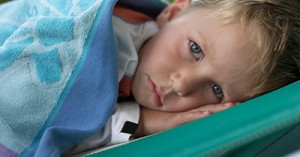

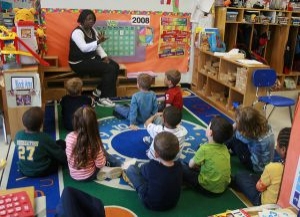 Working as a childcare professional can be a challenge especially when dealing with behavioural problems which may arise. The techniques we use when dealing with
Working as a childcare professional can be a challenge especially when dealing with behavioural problems which may arise. The techniques we use when dealing with There are different types of behaviour that children can display and sometimes it can be hard to manage, especially if a child is having behavioural
There are different types of behaviour that children can display and sometimes it can be hard to manage, especially if a child is having behavioural As a parent, your behavioural expectations of your child can be higher than what is actually developmentally appropriate for your child's age.
As a parent, your behavioural expectations of your child can be higher than what is actually developmentally appropriate for your child's age.
 As Educators, there will be many instances where you will need to write about a child's behaviour. For a behaviour management plan, assessments, half-yearly or
As Educators, there will be many instances where you will need to write about a child's behaviour. For a behaviour management plan, assessments, half-yearly or As Educators when communicating with Parents (through verbal or non-verbal communication), there will be times where we need to discuss issues or concerns that may
As Educators when communicating with Parents (through verbal or non-verbal communication), there will be times where we need to discuss issues or concerns that may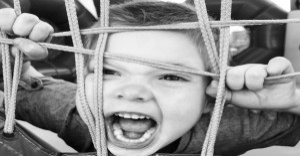 Challenging Behaviour is when a child does something that hurts themselves and/or other people.
Challenging Behaviour is when a child does something that hurts themselves and/or other people.
 As part of your child's development it is normal for your child to have anxiety and fears. A baby commonly shows a fearful sign to
As part of your child's development it is normal for your child to have anxiety and fears. A baby commonly shows a fearful sign to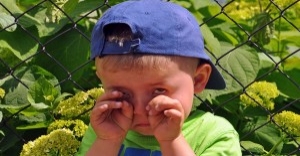 It's always difficult to bring up behavioural issues with parents, it can be nerve wrecking to tell a parent that their child misbehaves but that
It's always difficult to bring up behavioural issues with parents, it can be nerve wrecking to tell a parent that their child misbehaves but that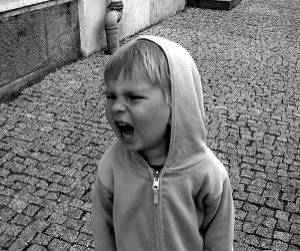 All children deal with anger on a daily basis. Thinking about it as a child, there is a lot to be angry about. Elder people
All children deal with anger on a daily basis. Thinking about it as a child, there is a lot to be angry about. Elder people It is important to understand that your child behaviour problems could not just be from attention seeking. There are many factors to take into consideration
It is important to understand that your child behaviour problems could not just be from attention seeking. There are many factors to take into consideration